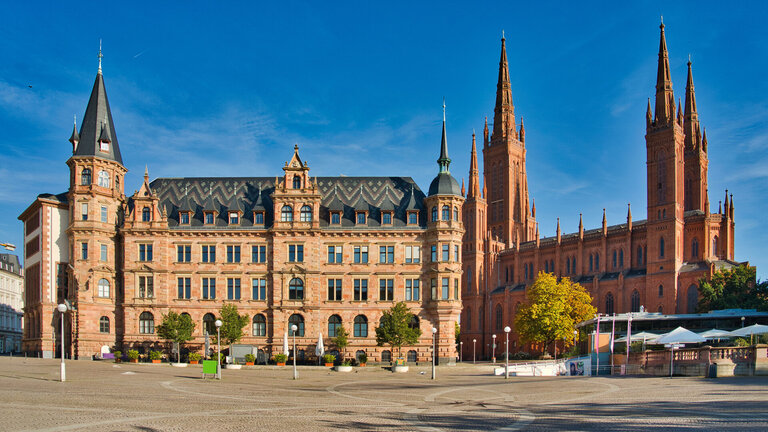From 2035, internal combustion engines will be no longer permitted in Germany. Cities and municipalities are already facing the enormous challenge of making their infrastructure fit for the market ramp-up of e-mobility. In urban areas, residents are usually dependent on public charging infrastructure. Therefore, Wiesbaden, together with the consulting company Drees & Sommer, have developed a plan for setting up public charging infrastructure in the Hessian state capital. The project partners have compiled the results of the implementation concept and findings from expert interviews conducted by the Fraunhofer Institute for Material Flow and Logistics (IML) in a “Guide to the development of public charging infrastructure”.
Wiesbaden is one of the few major German cities without a streetcar or subway network. Public transport is provided in the form of buses and express or regional trains. In 2021, there were 96.2 cars per 100 households in Wiesbaden —statistically speaking, almost every household owned a car. The already tense traffic situation within the urban area is exacerbated during peak hours by numerous commuters. By 2019, Wiesbaden had exceeded the nitrogen dioxide annual mean limit values several times. The task for the coming years is clear: increase the share of e-vehicles in private transport, promote cycling and walking, strengthen climate-friendly public transport and develop innovative concepts for inner-city delivery traffic.
Funded by the Federal Ministry for Economic Affairs and Energy, the Hessian state capital wants to develop the public charging infrastructure in a targeted manner as part of the “E-Mobility Hub” research project together with the Fraunhofer IML. Since November 2021, the consulting company Drees & Sommer, headquartered in Stuttgart, has been commissioned by the city to develop an implementation concept. The Fraunhofer IML conducted interviews with representatives from municipalities that have already developed public charging infrastructure or are planning to do so. These include the cities of Braunschweig, Darmstadt, Dresden, Düsseldorf, Hanover, Cologne, Munich, Offenbach and Stuttgart. The project partners have collected the most important results of the implementation concept, the dialog process and the expert interviews in a guide for municipalities.
Find more information in our press release.
